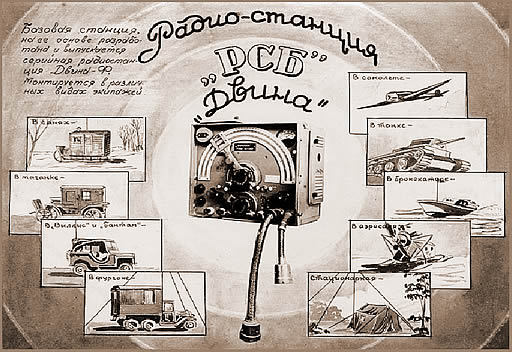This out-of-the-way power vacuum tube was widespread, but relatively rarely used by radio amateurs in theirs home-made transmitters, leastwise I could not find any publication of a practical TX circuit or typical telegraph and AM operation ratings in accessible to me post-1950's HAM radio sources. Perhaps it can be explained by the fact that there was a lot of much more usable tubes of the same power, which became available in those years, but such a lack of information puzzles me anyway.
At the same time, among the pirates, GKE-100 tube was very popular, though not considered as the best way to spend a 1500 Volts plate voltage (in comparison with more powerful GK-71 for example).
CHARACTERISTICS
| RF Power Output | 100 Watts | ГКЭ-100 (GKE-100) |
|---|---|---|
| Maximum Plate Dissipation | 80 Watts |  |
| Filament Voltage | 11 Volts | |
| Filament Current | 2 Amps. | |
| Plate Voltage | 1500 Volts | |
| Screen Voltage | 250 Volts | |
| Initial Plate Current | 80 mA | |
| Signal Grid Current | 6.5 mA | |
| Transconductance (Gm) | 2.5 mA/V | |
| Amplification Factor | 225 | |
| Input Capacitance | 15 mmfd | |
| Output Capacitance | 10.5 mmfd | |
| Grid to Plate Capacitance | 0.05 mmfd | |
| Height | 220-20 mm | |
| Diameter | 62-4 mm |

According to pre-WWII Soviet standards, ГКЭ-100 means:
- G (Г) = "generator tube" (Генератор)
- K = "shortwave" (Коротковолновая)
- E (Э) = "has a screen grid" (Экран)
- 100 = "100 watts RF power output"
GKE-100 tube has a direct heated carbide-coated cathode and a wicker molybdenum grid. Noticeable fact: back in 1942, when most machinery has been evacuated from Fryazino factory to Uzbekistan, these grids were woven using an old-fashioned wooden loom.
The earliest mention of this tube, likely, can be found in the mid-1930s
in connection with the development of Soviet general WWII mobile radio
station "РСБ" (RSB, Base Radio Station) (80 Watts, ГУ-4 (GU-4) exciter and ГКЭ-100 (GKE-100) amplifier), the latest
GKE-100 I have ever seen made in the late 1960s.
RSB (Dvina) radiostation promo



No comments :
Post a Comment